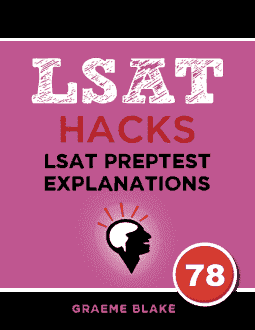QUESTION TEXT: Most kinds of soil contain clay, and…
QUESTION TYPE: Flawed Parallel Reasoning
CONCLUSION:
- Soil SOME Clay and Sand
- Soil SOME Clay and organic material
REASONING:
- Soil MOST ➞ Clay
- Soil ➞ Sand OR Organic Material
Note: The second one is technically “virtually every” rather than “all”. But this actually has no impact on the argument, so I drew an “all” statement to avoid muddying the issue.
ANALYSIS: This is a subtly wrong argument. The author could have correctly concluded that it’s true there must be some soil with both clay and one of sand or organic material.
But we can’t conclude that soil has clay with both of those things. I’ll explain why with an analogous argument.
Reasoning: Most Americans are women. Virtually all Americans are either salaried workers, or Barack Obama, or both.
Conclusion: Some Americans are women and salaried workers. And also, some Americans are women and Barack Obama.
The reason this doesn’t work is because of quantity. Most means more than half (e.g. 51%). Whereas there is only one Barack Obama. So “most Americans” doesn’t need to overlap with Barack Obama – there’s only one of him!
Likewise, “most soil” doesn’t need to overlap with both sand and organic material. Maybe only a tiny portion of soil has sand, for example, and none of it has clay.
To parallel this argument, you should look for something that inappropriately tries to stretch a “most” statement across two separate necessary conditions.
___________
- Close, but the conclusion didn’t say “if there are some kinds of soil that contain clay and sand”. The conclusion was definite rather than conditional.
- The form of this conclusion doesn’t match at all. It just says “most pharmacies sell cosmetics”. The stimulus had dual statements as a conclusion.
- Similar to A. The argument didn’t say “unless there are some soils that”….
The conclusion was definite, not conditional. - This is really close, but the language differs. The first sentence is wrong. It’s like saying “virtually every kind of soil with sand also has organic material”.
This answer should have said what E says. - CORRECT. This matches exactly. We’ve got a most statement, a “virtually every” statement with two conditions, and a compound conclusion that inappropriately joins the “most” statement with both conditions in the virtually every statement.

Free Logical Reasoning lesson
Get a free sample of the Logical Reasoning Mastery Seminar. Learn tips for solving LR questions


Leave a Reply